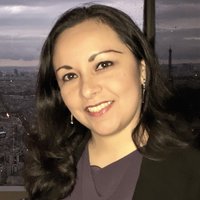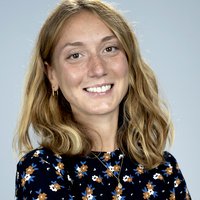Biobanking
- Duration: 8 weeks
- Effort: 24 hours
- Pace: ~3 hours/week
- Languages: English, french and spanish
What you will learn
At the end of this course, you will be able to:
- Understand how these biobanks allow end-users to have permanent access to fit-for-purpose samples.
- Know how the long-term storage of samples should be structured
- Be aware of the ethics, regulatory aspects and quality issues behind preservation and distribution of biological resources
- Understand how biobanks are linked throughout the world.
Description
Biobanks are entities ensuring the governance, management and conservation of biological resources, such as living cells, viruses, bacteria and fungi, and their associated data. The major objective of biobanks is to preserve these resources in optimal conditions to maintain their integrity and make them available to the scientific community to both advance research and knowledge worldwide, and facilitate the development of innovative drugs, vaccines or diagnostic tests.
In this MOOC, the organizational aspects of sampling, collection, transport and conservation of different biological resources, which vary depending on the material considered, are discussed, as well as the organization and management of a biobank and its equipment. Peculiarities of human sampling and of the conservation and utilization of human samples is approached. Several sessions are devoted to the quality control of these biobanks to meet international regulations.
//
NOTA : El contenido del curso también está en español
Format
This MOOC is composed of 4 teaching chapters. Each chapter has 5 to 9 sequences. Each sequence consists of a video of about 10 minutes and a MCQ so that students can test their knowledge. The videos are in English with French, spanish and English subtitles.
//
Los videos están en inglés, con subtítulos en inglés, francés y español. Para los estudiantes que han elegido el examen de certificación, éste se puede realizar en inglés, francés o español.
Prerequisites
This MOOC is aimed at undergraduate, graduate and PhD biology students, medical doctors, teachers, researchers and all those who want to learn what are biobanks and how they have to be managed. A good scientific background is recommended to follow this MOOC.
Assessment and certification
To follow this course, you can choose between two options:
- The Discovery Course gives access to videos, quizzes and discussions in the forum. No certificate is issued for this course. Registration is free.
- The Qualifying Course leads to a certificate. In addition to the activities of the Discovery Course, you will have to take a one-hour supervised distance learning exam, consisting of 30 multiple-choice questions (MCQs) and obtaining 18 correct answers. The registration fee for the Qualifying Course is 150€.
Successful completion of the Qualifying Course gives you the opportunity to apply for the Institut Pasteur Online Diploma of Infectious Diseases (DNM2IP), which consists of 5 certificates to Institut Pasteur MOOCs on infectious diseases. To learn more, visit the Institut Pasteur's web page dedicated to this diploma.
Course plan
- C1.1: Acquisition of microorganisms and its regulations - Joëlle Dupont (National Natural History Museum)
- C1.2: Description of a new bacterial species and control of its identity - Sylvain Brisse (Institut Pasteur)
- C1.3: Methods of preserving bacteria (lyophilization and freezing) - Dominique Clermont (Institut Pasteur)
- C1.4: Identification of fungi - Dea Garcia-Hermoso (Institut Pasteur)
- C1.5: Methods of preserving fungi - Dirk Stubbe (Sciensano)
- C1.6: Methods for cultivation and preservation of cyanobacteria - Muriel Gugger (Institut Pasteur)
- C1.7: Recruitment of volunteers for a human-sample biobank - Marie-Noelle Ungeheuer (Institut Pasteur)
- C1.8: Reparation and storage of human samples - Marie-Noelle Ungeheuer (Institut Pasteur)
- C1.9: Establishment of a viral biobank - Hervé Bourhy (Institut Pasteur)
- C2.1: Distribution of microorganisms and its regulations - Dominique Clermont (Institut Pasteur)
- C2.2: Biobanking and personalized medicine - Gianluca Severi (INSERM)
- C2.3: Distribution of human biological-samples: ethical and regulatory aspects - Amina Aït-Saadi (Institut Pasteur)
- C2.4: Procurement and contracts for biobanks - Matt McLoughlin (Scientist.com)
- C3.1: Health security and biobanks of infectious agents - Didier Houssin (APHP international)
- C3.2: The advantages of a Quality Management System - Nadine Ferey (Institut Pasteur)
- C3.3: GMOs and high-pathogenic microorganisms and toxins - Raquel Hurtado-Ortiz (Institut Pasteur)
- C3.4: Biobanking automation - Hélène Blanché-Koch (Fondation Jean Dausset)
- C3.5: IT tool for management and traceability - Laurent Swenson (Institut Pasteur)
- C3.6: Ethics in a health crisis - Ebola’s lessons - Virginie Pirard (Institut Pasteur)
- C4-1: Patents: International Depositary Authorities (IDAs) and the Budapest Treaty - Raquel Hurtado-Ortiz (Institut Pasteur)
- C4.2: Pharmaceutical applications of plant collections - Bruno David (Pierre Fabre)
- C4.3: Microbiome and conservation of microbial consortia - Mathieu Groussin (MIT)
- C4.4: Drug Discovery from Natural Products Libraries of Microbial Collections - Olga Genilloud (Fundación Medina)
- C4.5: Biobanks and diagnosis of infectious diseases - Jean Claude Manuguerra (Institut Pasteur)
Course team
RAQUEL HURTADO-ORTIZ
Categories
Adriana Chiarelli
Categories
Organizations
Partners
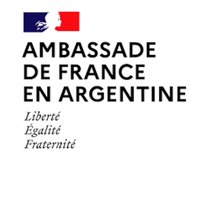
French Embassy in Argentina
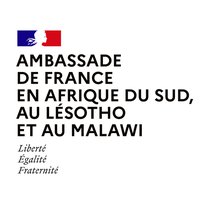
French Embassy in South Africa, Lesotho and Malawi
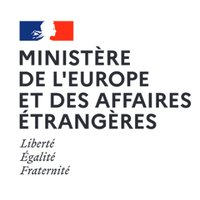
Ministry of Europe and Foreign Affairs
With the support of Fond de solidarité pour les projets innovants (FSPI)
License
License for the course content

Attribution-NonCommercial-NoDerivatives
You are free to:
- Share — copy and redistribute the material in any medium or format
Under the following terms:
- Attribution — You must give appropriate credit, provide a link to the license, and indicate if changes were made. You may do so in any reasonable manner, but not in any way that suggests the licensor endorses you or your use.
- NonCommercial — You may not use the material for commercial purposes.
- NoDerivatives — If you remix, transform, or build upon the material, you may not distribute the modified material.
License for the content created by course participants

All rights reserved
"All rights reserved" is a copyright formality indicating that the copyright holder reserves, or holds for its own use, all the rights provided by copyright law.



